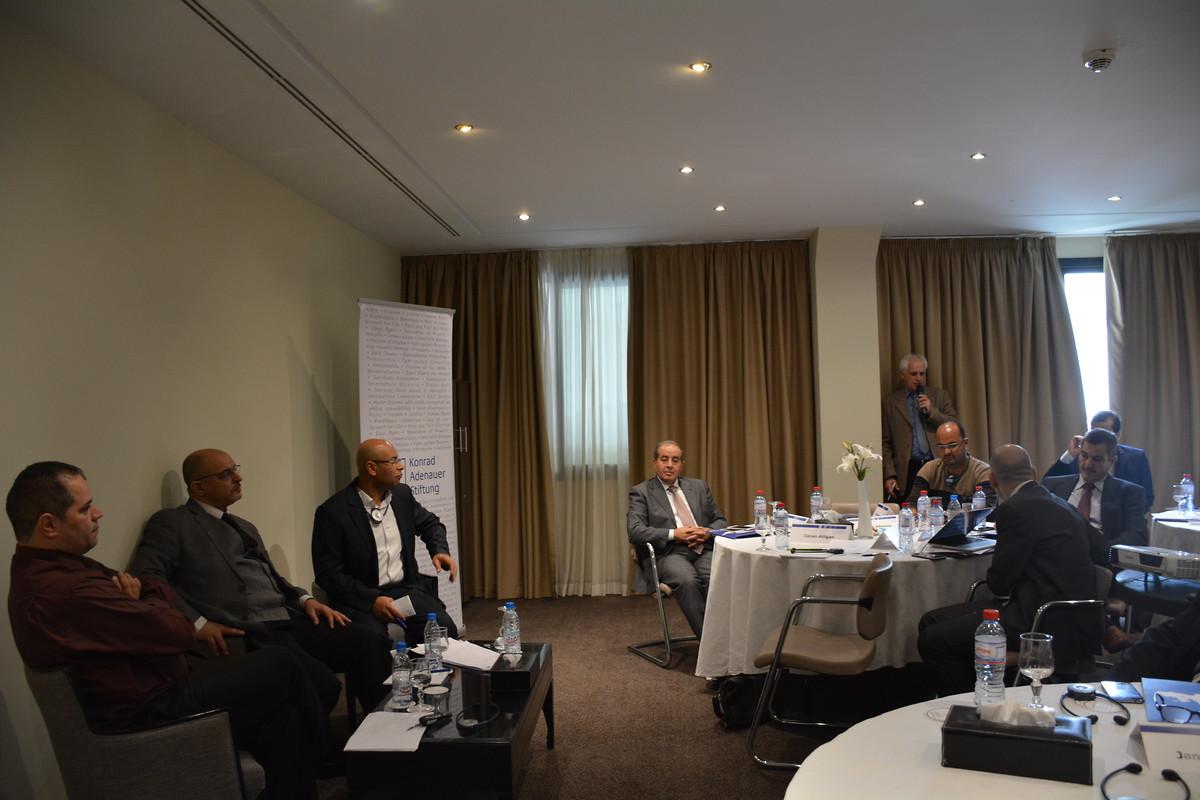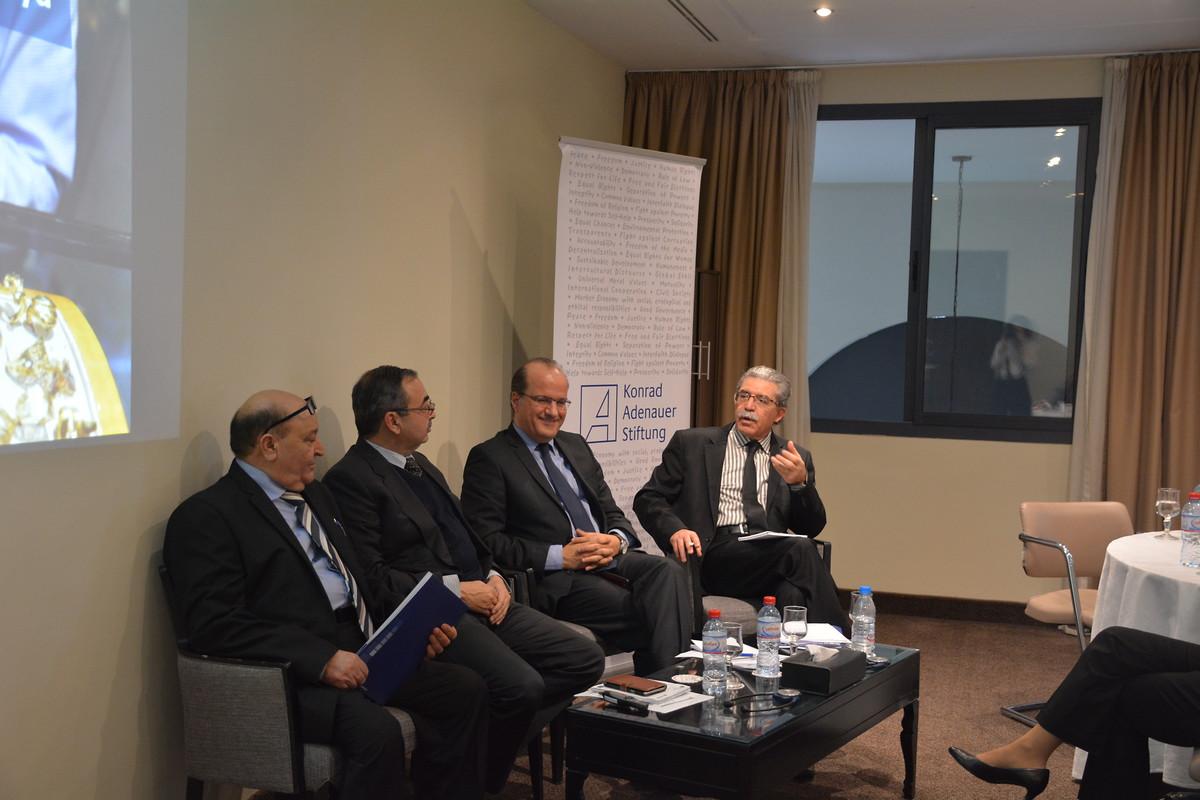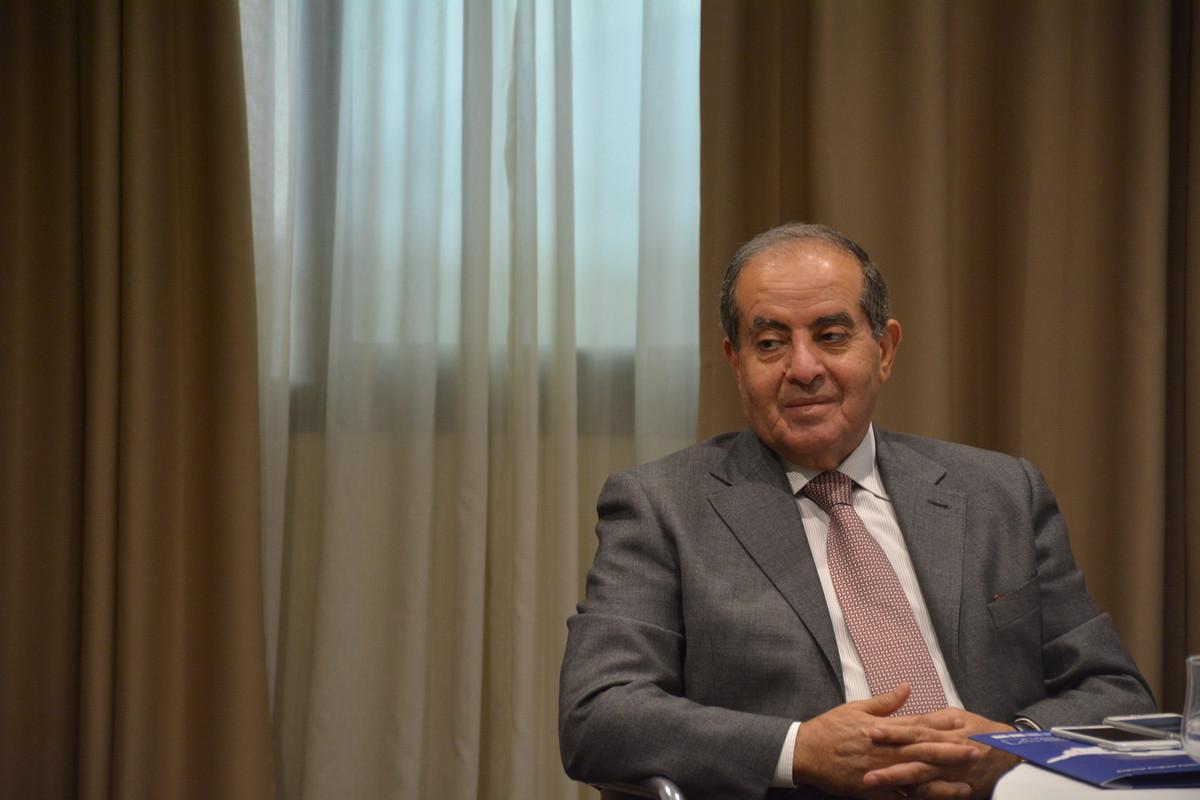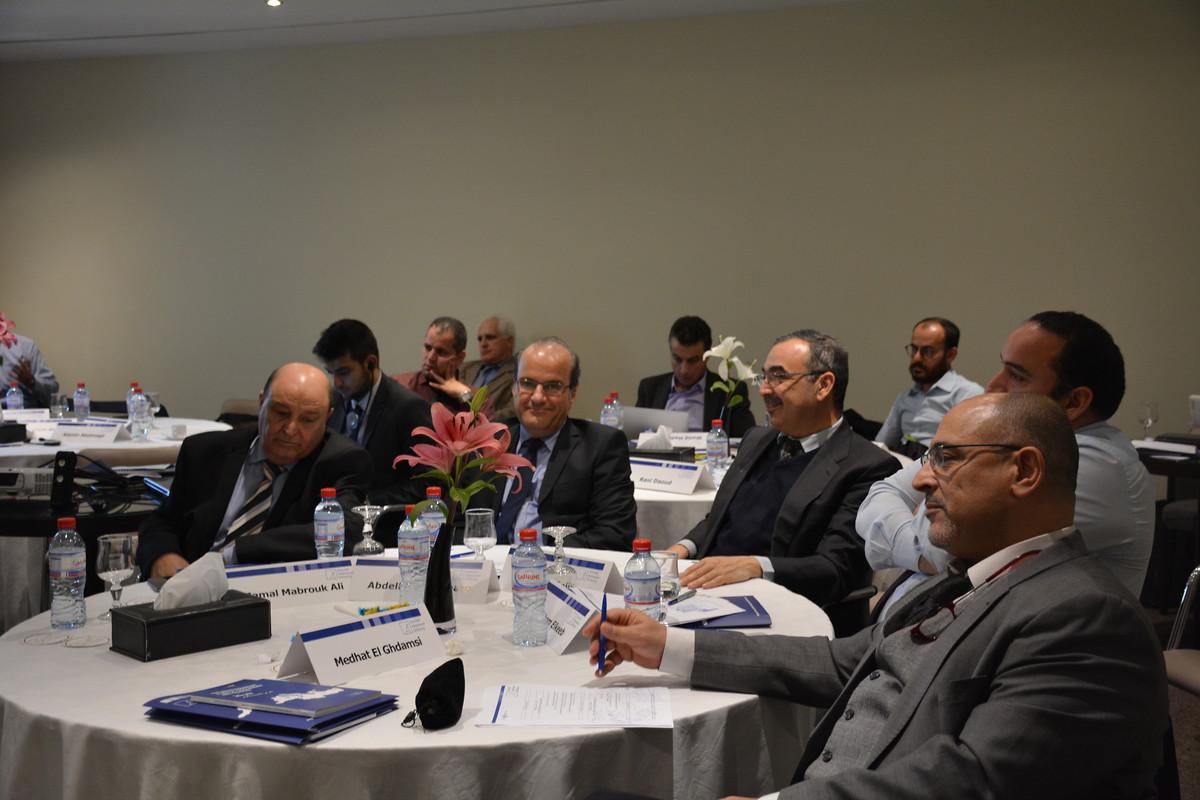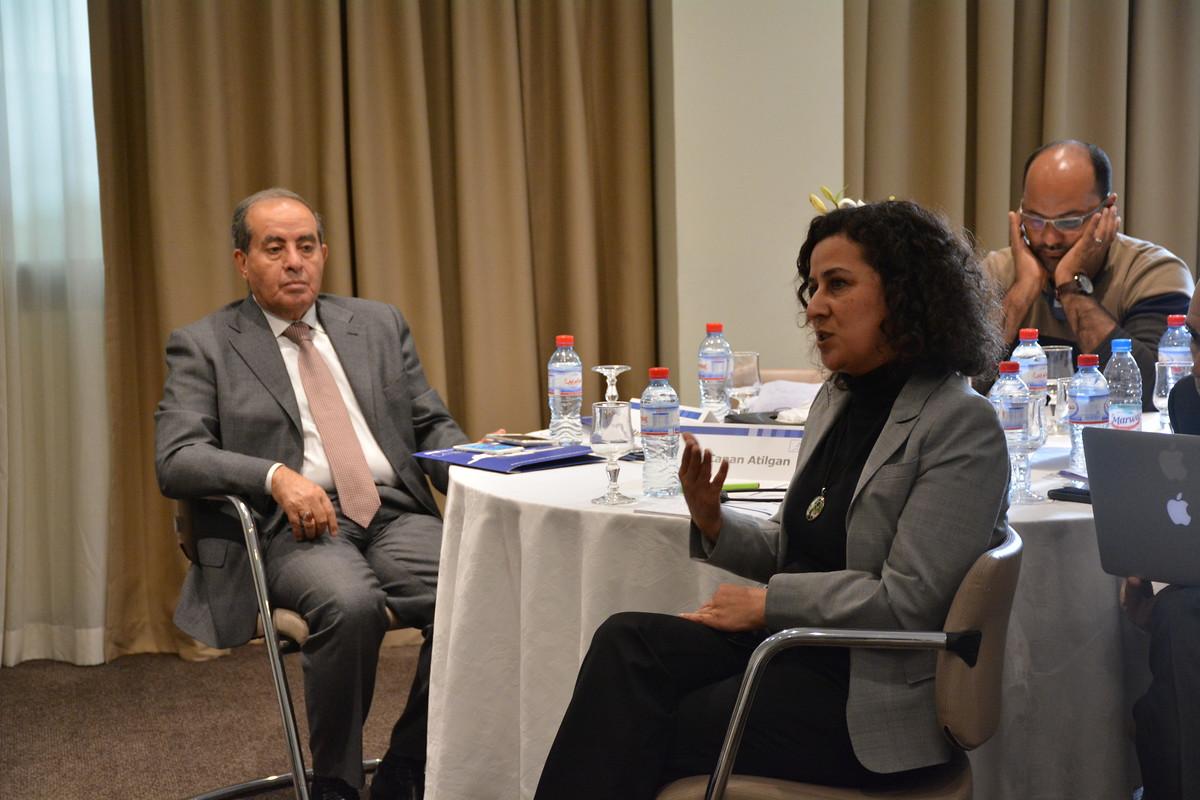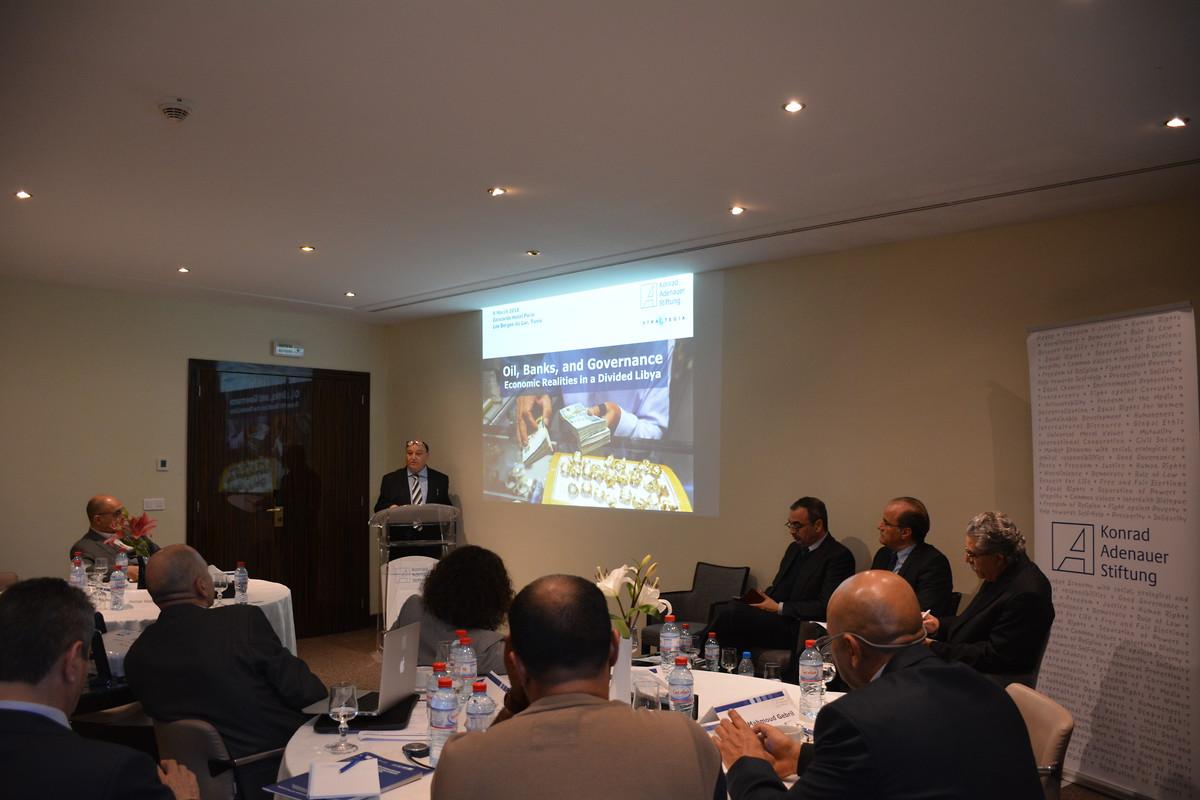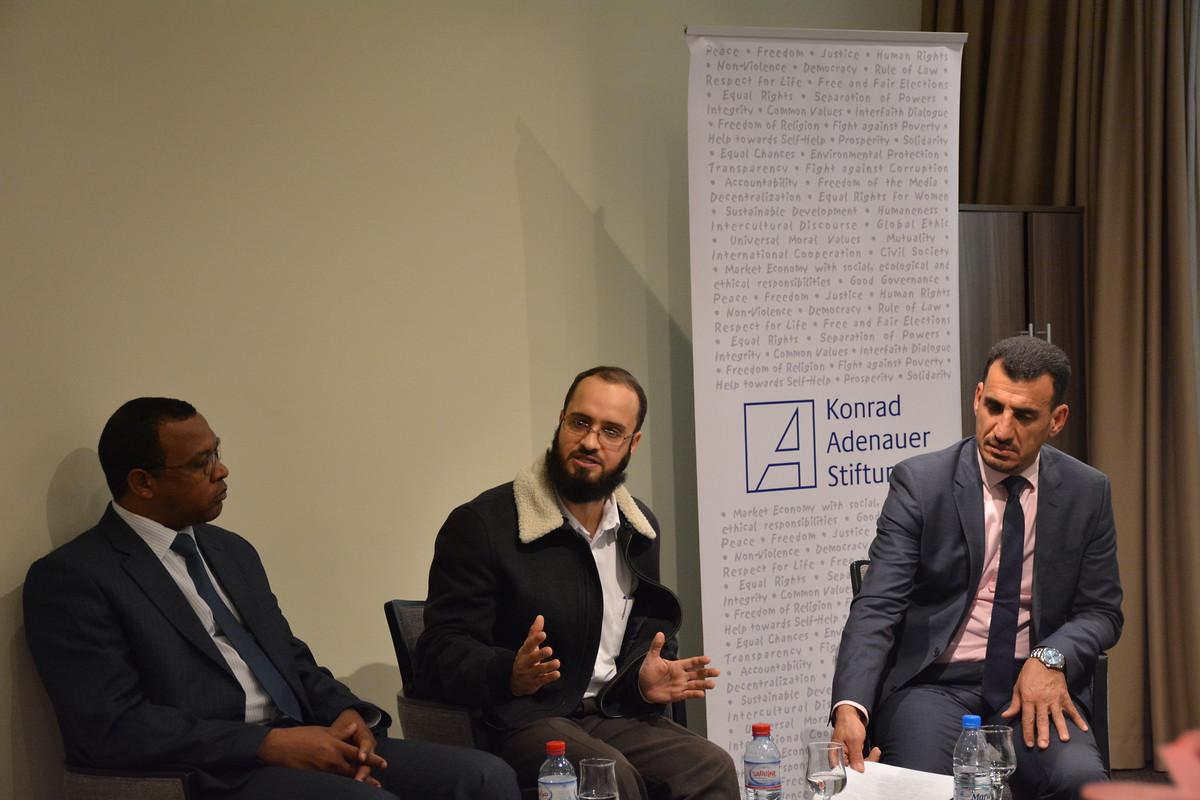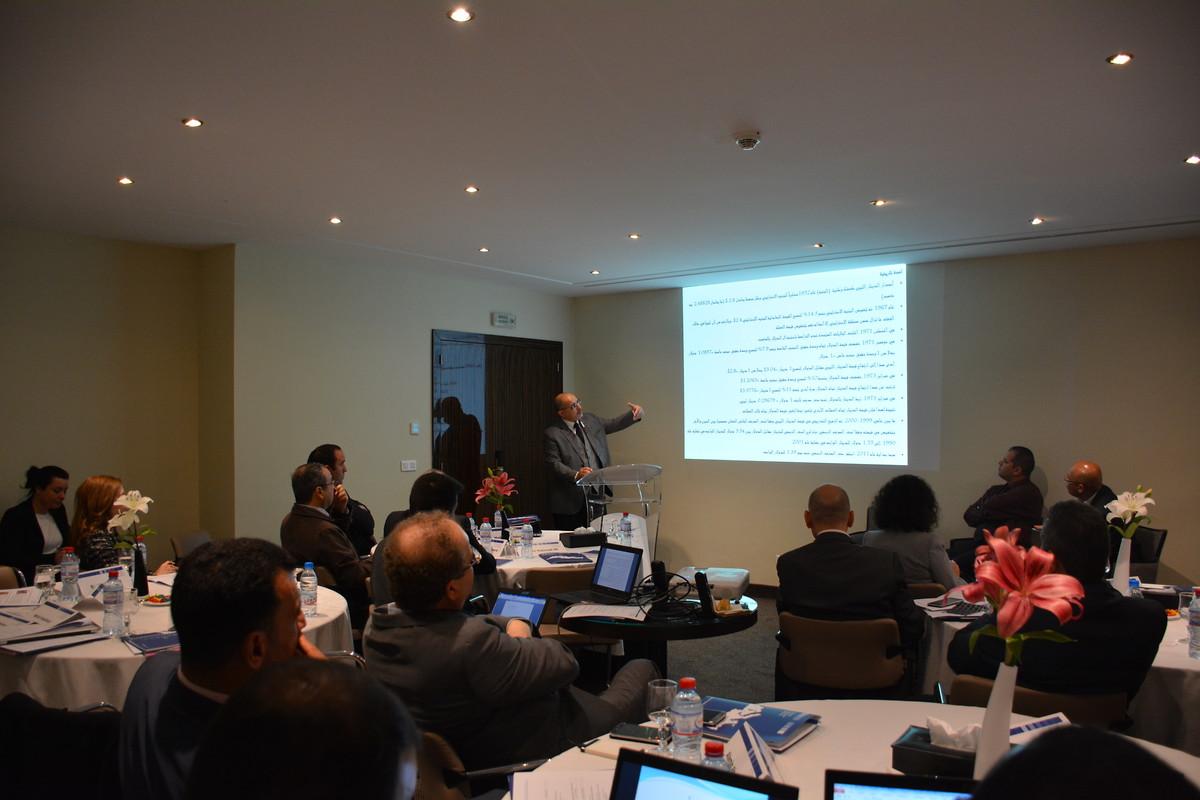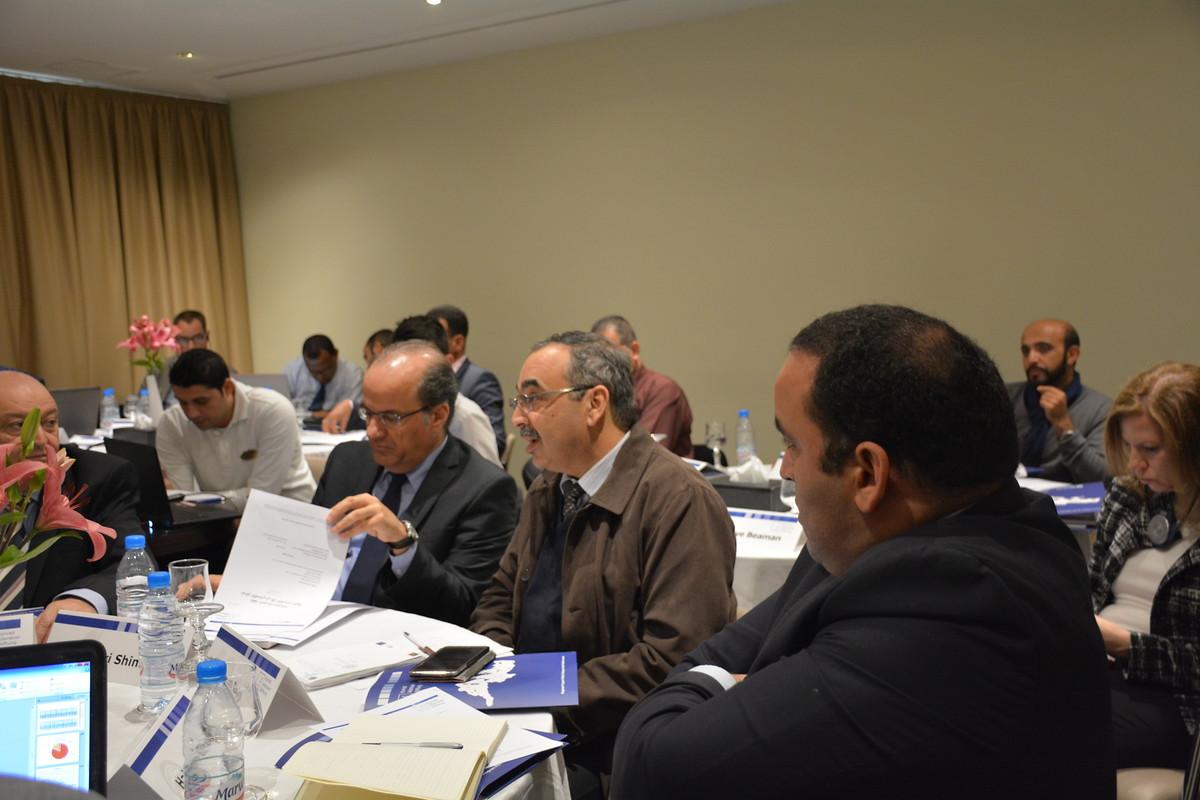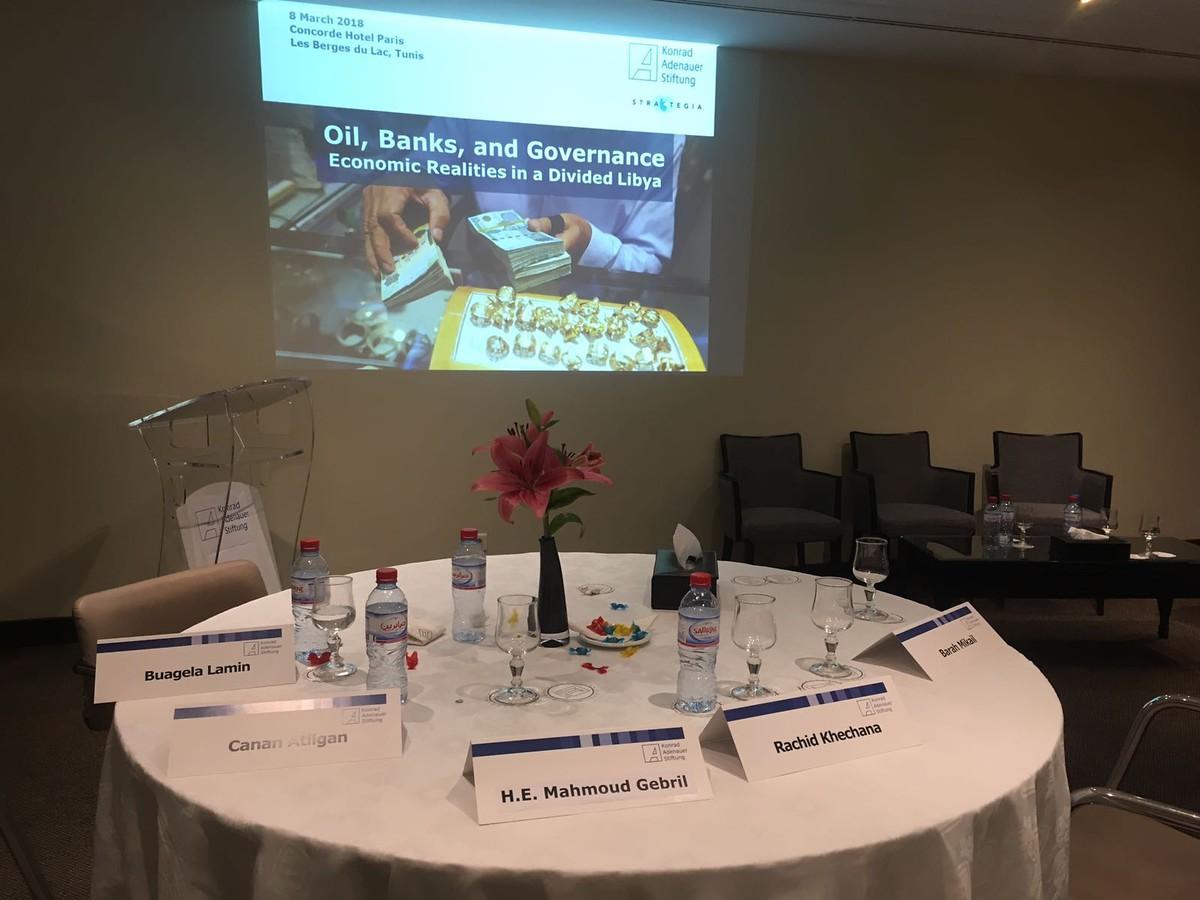Event reports
To contribute to a deepened understanding of the Libyan economy in the current situation, the KAS Regional Program South Mediterranean in cooperation with the Madrid-based think tank Stractegia organized a roundtable within the framework of a two-year series of dialogue rounds entitled "Oil, Banks, and Governance: Economic Realities in a Divided Libya" dedicated to assess the state of play and identify a possible way forward in order to overcome Libya’s key socioeconomic dilemmas and difficulties. The roundtable on 8 March 2018 provided a platform for Libyan-Libyan dialogue by bringing together a variety of experts and stakeholders from within the Libyan economy, including Former Prime Minister and President of the National Forces Alliance H.E. Dr. Mahmoud Gebril, who exchanged their analyses and testimonials during panels on the country's oil and banking sectors, the role of the private and shadow economies in absence of effective state governance and the function of municipalities in filling the gap of public service provision.
Some of the main questions addressed during the roundtable were: How does the Libyan economy function in the absence of effective state structures? Is there a profound analysis of the current situation, in which the access to basic public services is limited and smuggling has turned into a lucrative business model? Which authorities take decisions and which measurements are feasible? Are there any priorities set by the local and state institutions active in shaping the Libyan economy?
Libya, the country with the largest oil reserves on the African continent, stopped being a stable supplier to the regional economy. Oil revenues have decreased by a quarter and despite reports of increasing production, the country lags far behind its potentials. The economic crises – seen by some of the experts present as the main motivation behind many faces of the conflict – undermines both social peace and public confidence in the state while it requires the country to stay on the drip of foreign humanitarian and development aid. Thus, finding sustainable solutions for the key economic challenges in Libya can be the start for a resolution of the crisis and an emphasis on a united political economy and 'good governance' could be a catalyst for Libyan development. The expert roundtable concluded with five main recommendations:



